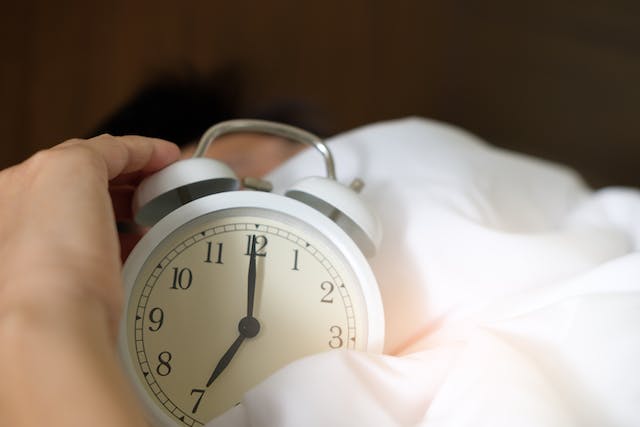Best Ways to Naturally Boost Testosterone
Testosterone is a steroid hormone influencing our bodies in areas like sexual function, happiness, increased strength and muscle growth. This article provides evidence-backed ways to naturally boost testosterone.
The best ways to naturally boost testosterone are lifting heavy weights, proper nutrition, quality sleep, and optimal light exposure. These factors play a crucial role in hormone optimization.
In our article, we are providing practical insights grounded in scientific findings. This study offers valuable information about the impact of testosterone on one´s health.
Let’s delve into how each of these factors positively impacts testosterone levels.

Heavy Weight Lifting
Heavy weight lifting isn’t just about building muscles; it significantly boosts testosterone levels, as confirmed by recent research. This means more than just physical changes; it’s a direct impact on your body’s hormonal balance.
The study emphasizes the practical benefit of incorporating intense weightlifting into your routine. It’s a straightforward, evidence-backed way to enhance not only muscle development but also overall physical performance.
Proper Nutrition
Elevating testosterone isn’t just about weights; nutrition is crucial for hormonal balance. The impact on hormones often goes unnoticed but deserves attention.
A protein-rich diet is vital for optimal testosterone. It supports muscle development and hormone synthesis, contributing to hormonal health.
While low-fat diets are common, healthy fats are crucial for testosterone. Low-fat intake can lead to lower testosterone levels. Including fats from avocados and nuts helps maintain hormonal balance.
Opt for whole foods over processed options. Processed foods may contain additives negatively impacting hormones. For natural testosterone optimization, prioritize a diet rich in whole foods.

Supplements
Unlock the potential of natural testosterone elevation with targeted supplements often overlooked in mainstream discussions.
Vitamin D
While widely recognized, the role of Vitamin D in testosterone production is underemphasized. Research suggests its importance, indicating a correlation between Vitamin D levels and testosterone. Adequate sunlight exposure and supplementation can be key for those looking to optimize testosterone naturally.
Zinc is a critical player in testosterone synthesis. This essential mineral is involved in various enzymatic processes, directly impacting testosterone production. Ensuring sufficient Zinc intake through diet or supplementation is paramount for maintaining hormonal balance. You can read more about it in this article.
Omega-3
Omega-3 fatty acids contribute to overall health, but their impact on testosterone is less discussed. Research indicates that Omega-3 supplementation may positively influence testosterone levels, making it a valuable addition for those aiming to boost their hormonal health.

Maca and Tribulus
Maca, a lesser-known root vegetable, shows promise in boosting testosterone in some studies. While more research is needed, incorporating Maca cautiously may offer additional support for hormonal balance.
Derived from a plant, Tribulus has also shown potential in influencing testosterone levels in certain studies. As with any supplement, cautious incorporation is advisable for those seeking additional support in optimizing hormonal balance.
Avoid Stress
Cortisol, produced in response to stress, becomes a significant adversary for athletes seeking muscle gains by lowering testosterone.
This hormonal interplay extends beyond physical implications, affecting mental happiness. Persistently elevated cortisol can contribute to lowered testosterone and mental health challenges like depression.
Effectively managing stress requires a holistic approach. Exercise, mindfulness practices, adequate rest, and a balanced lifestyle play crucial roles.
Recognizing cortisol as a formidable opponent and adopting tailored stress management techniques are vital for both physical and mental well-being.
Too much demanding and long training can also increase cortisol elevation. So be mindful about making your workouts effective but do not be overstressing your body. Intensification techniques like training to failure, HIT training or half reping should be used wisely.
Quality Sleep
Discover the vital link between testosterone and quality sleep, crucial for overall well-being.
Testosterone Production
Quality sleep isn’t just rest; it’s crucial for testosterone production. Most testosterone is synthesized during deep sleep, underlining the importance of uninterrupted, quality sleep for hormonal balance.
Sleeping Environment
The sleep environment matters. Artificial light, especially before bedtime, disrupts the body’s natural rhythm and melatonin production. Sleeping in complete darkness supports hormonal balance, including testosterone regulation.
Proper Sleep Duration and Timing
It’s not just about hours; consistency is key. Aim for around 8 hours per night, keeping a regular sleep schedule. As study discovered – consistent sleep and wake times promote stable hormonal health, enhancing overall physical and mental well-being.
For those interested in more information about why sleeping is so important, please check this book.

Proper Light Exposure
Unlock the impact of light on testosterone by grasping the basics of circadian rhythms.
Circadian Rhythms
Circadian rhythms control our 24-hour cycles, influenced by light, food, stress, activity, social environment, and temperature.
Light Exposure Timing
Strategic light exposure is crucial. Maximize natural light in the morning and throughout the day, aligning with the body’s natural rhythms. Conversely, avoid blue light from screens in the evening, disrupting the natural circadian rhythm.
Impact on Testosterone
Circadian rhythms significantly affect testosterone production. As studies show, proper light exposure is a powerful tool for naturally optimizing testosterone levels.
Summary:
- Get sunlight in the morning
- Maximize daylight exposure during the day
- Limit blue light exposure in the evening
- Avoid screens 1 hour before sleep

Alcohol Avoidance
Learn the facts about how alcohol impacts testosterone, with insights often overlooked.
Moderate Alcohol and Testosterone
Moderate alcohol intake may increase testosterone production, as suggested by a review. However, the effects depend on the frequency and quantity consumed. Small and occasional amounts may have positive impacts, but larger or frequent consumption can reverse these effects.
Impact on Sperm Counts
Research on alcohol’s impact on sperm counts is inconclusive, but a review hints at potential reductions. Understanding the quantity and frequency of alcohol intake is crucial for assessing its effects on reproductive health.
Chronic Excessive Alcohol Intake
Studies, including one from the NCBI, confirm that chronic excessive alcohol intake lowers testosterone levels. Moderation presents a more nuanced picture, showcasing varied effects on testosterone.
Hormonal Changes
A Healthline study suggests heavy alcohol consumption induces short-term and long-term hormonal changes, including testosterone. Heavy drinkers face a higher likelihood of poor testicular function compared to those with moderate alcohol intake.
Understanding the impact of alcohol on testosterone enables informed choices, emphasizing moderation for potential positive effects and avoiding chronic and excessive consumption for overall hormonal and reproductive health.
Takeaway
Boost testosterone naturally:
- Weightlifting stimulates testosterone production.
- Protein-rich diets aid muscle and hormone synthesis.
- Healthy fats, like avocados, support testosterone.
- Choose whole foods for hormonal balance.
- Supplements impact testosterone—use cautiously.
- Stress management is crucial for hormonal health.
- Quality sleep, aligned with circadian rhythms, optimizes testosterone.
- Strategic light exposure, especially in the morning, benefits hormonal balance.
- Alcohol in moderation may have positive effects, but excess reduces testosterone.
Adopt these strategies for a natural testosterone boost, enhancing overall well-being.
FAQ
What’s the role of light exposure in testosterone levels?
Are there specific stress management techniques proven to positively influence testosterone levels?
Are there specific types of exercises within weightlifting that boost testosterone more?
Strategic light exposure, especially in the morning, aligns with circadian rhythms and positively influences hormonal balance.
Engaging in activities like meditation, deep breathing, and regular exercise has been associated with lower stress levels, positively influencing testosterone.
Compound exercises, such as squats and deadlifts, are particularly effective in triggering testosterone release during weightlifting sessions.
Can exposure to artificial light before bedtime have a significant impact on testosterone levels?
How quickly can I see changes in testosterone levels by implementing these lifestyle adjustments?
Are there alternative methods to sun exposure for those with limited access to natural light?
Yes, exposure to blue light from screens before bedtime can disrupt circadian rhythms and potentially lower testosterone levels.
The timeline for noticing changes in testosterone levels varies among individuals, but consistent adherence to these lifestyle adjustments over several weeks can yield positive results.
Full-spectrum light bulbs or light therapy devices can be alternative sources to mimic the benefits of natural light exposure.
